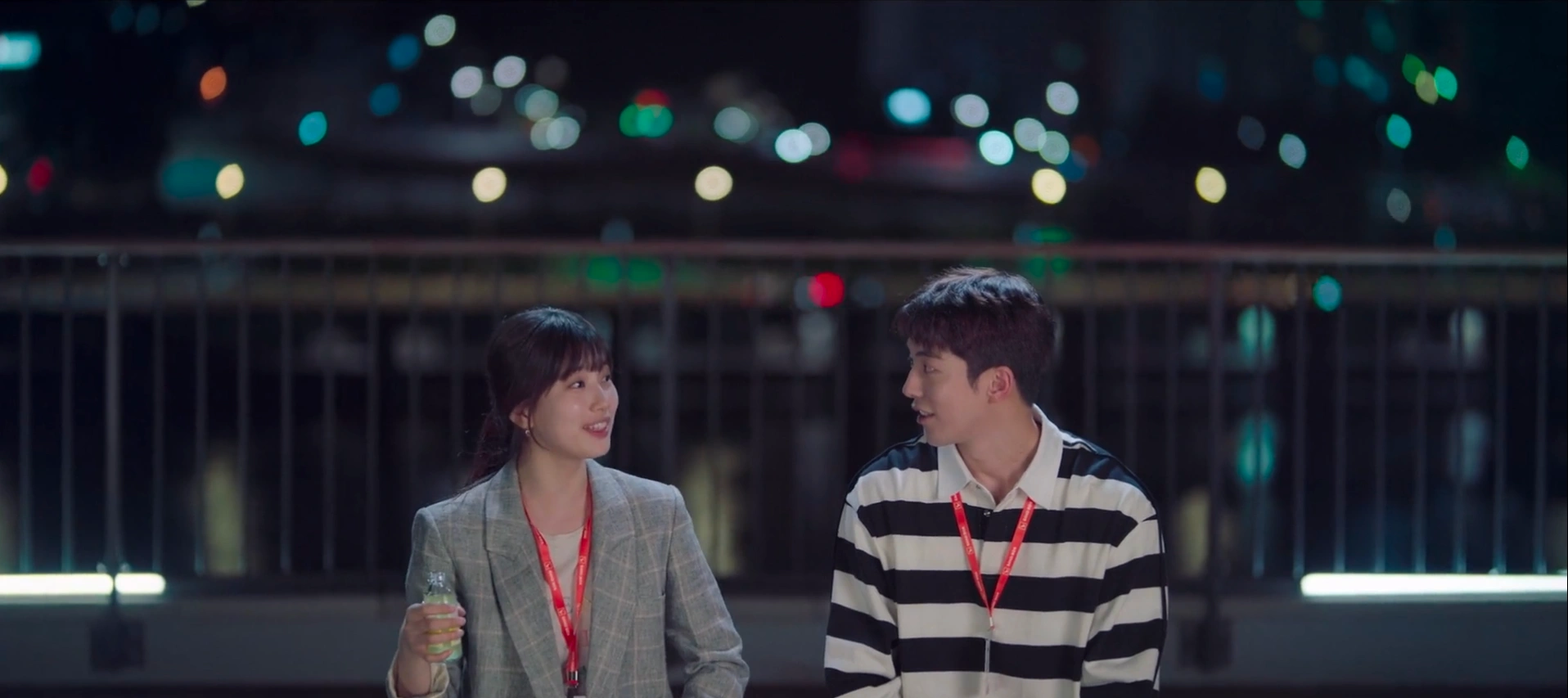I started watching Start-Up thinking it would be another typical rom-com, but it ended up being much more layered. The first few episodes had real emotional weight. The scene where Dal-mi's father dies right after getting that investor was genuinely devastating. The story didn't ease you in, it immediately established the stakes around ambition, family, and loss.
Dal-mi's drive to succeed despite everything, felt authentic. I appreciated that she wasn't written as just a "dreamy" female lead, she was practical, observant, and resilient. In those early Sandbox episodes, she made smart decisions while maintaining her principles, which I found compelling.
At first, I didn't really get Nam Do-san. I wasn't sure if he actually liked Dal-mi or if he just got carried away pretending to be the guy from her letters. It felt like he was more caught up in playing the role than being honest about his feelings. I kept wondering, does he care about her for real, or is he just trying to live up to someone she imagined?
But then I realized, he was just as uncertain as she was. His self-esteem issues and impulsive behavior, while sometimes frustrating, felt realistic. He wasn't some polished kdrama lead like he usually is in his other kdramas. He was flawed, insecure, and desperately wanted validation.
But I found myself rooting for Han Ji-pyeong from early on. His relationship with the grandma was beautifully written. The warmth he showed her, contrasted with his sharp demeanor toward everyone else, created this fascinating character depth. I wanted him to get his resolution. But I also recognized his emotional limitations, he used success as armor and couldn't separate his feelings from his sense of obligation. That scene where he tries to confess but frames it around his "debt" to grandma? That revealed everything about how he approached relationships.
By the middle episodes, the love triangle intensified, and I could see the show's direction. Both men cared for Dal-mi differently, but Ji-pyeong being gradually sidelined—despite his emotional investment felt somewhat unbalanced. Still, her choice of Do-san made narrative sense. Ji-pyeong represented stability and calculation. Do-san was uncertainty and growth. She chose the person who'd build something with her rather than someone who'd already built everything.
The time skip created mixed results. Ji-pyeong's arc felt incomplete, successful but isolated. That moment where grandma tells him not to be alone was sad and devastating. Do-san, meanwhile, had evolved. Their reunion felt earned rather than convenient, though I wasn't invested in every aspect of their relationship development.
In-jae deserved better development. Her family dynamics were underexplored, and there were missed opportunities, particularly with a potential Ji-pyeong connection. They shared similar approaches to business and emotion that could have been interesting to explore.
The ending was satisfactory- clean, perhaps overly neat. Everyone in suits, scaling up successfully. It provided closure without being particularly surprising. The Sandbox metaphor worked well throughout: a safe space to fail and try again.
The business elements actually engaged me more than the romance. Watching the startup process—the need for vision, teamwork, and persistence beyond just technical skills was well handled. Dal-mi and Do-san worked because they challenged each other. Ji-pyeong was the foundation, necessary but not the catalyst.
Ji-pyeong deserved more resolution, not necessarily Dal-mi, but clearer closure. Still, his character did grow and learn to let go, which felt honest.
The OST was soo good, I am still listening to "Future" by Red Velvet.
Start-Up wasn't flawless. The pacing occasionally lagged, the triangle stretched too long, and some characters got sidelined. But it delivered genuine emotional moments and meaningful themes about resilience and second chances. I'd rewatch it for the grandma-Ji-pyeong scenes alone, and for its message about getting back up after failure.
Watch on Netflix

